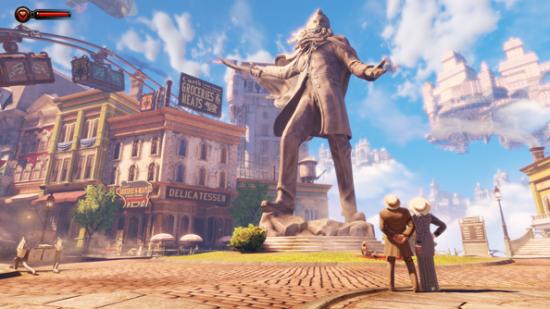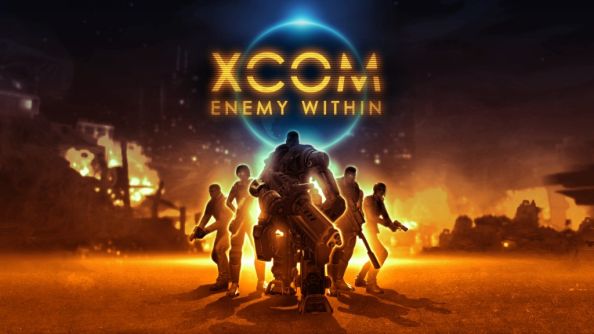What were the top PC games 2013? Imagine… the year is 2013, Brazil are still a globally respected football team and the world is being pelted with classic PC game after classic PC game. Yes, 2013 was a particularly sweet year for quality games, so much so that we sought to definitively catalogue them in a nice big list feature.
From BioShock Infinite to Batman: Arkham Origins, from Gone Home to Gunpoint, from Metro: Last Light to another game beginning with M, they’re all probably in here somewhere, in no particular order.
And if they’re not? Well, you get the great pleasure of politely informing us in the comments below, you lovely lot.
BioShock Infinite
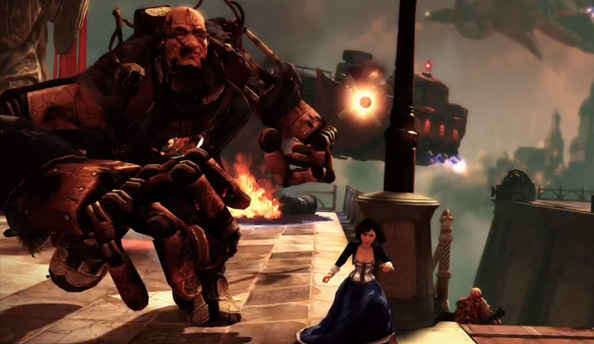
A little known title from obscure developer Irrational Games, BioShock Infinite is the story of a man who must infiltrate a flying city full of racists, puritans and revolutionaries in order to rescue a girl who can open rifts in space and time, thereby marrying the whitewashed, boardwalk idealism of turn of the century America to wild and subversive science-fiction. He achieves this primarily by shooting crows out of his fists. Check out our Clash in the Clouds DLC review and Burial at Sea Part one and Part Two.
Rogue Legacy
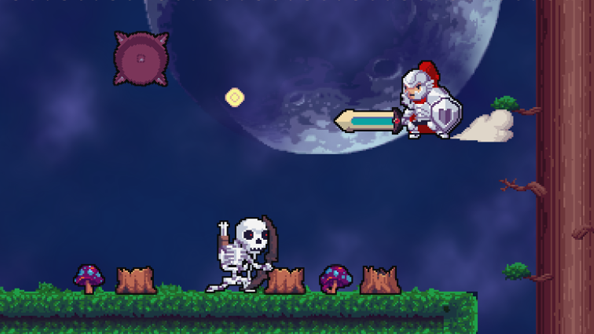
Metroidvania castle exploration in which death is permanent, but you may continue your adventure playing as your offspring, who inherits not only your gold, skills, abilities and progress, but some form of genetic trait that either helps or hinders them on their adventure. Vertigo, short-sightedness, dwarfism, they all affect the experience in a different manner. Check out Rogue Legacy review.
Counter-Strike: Global Offensive
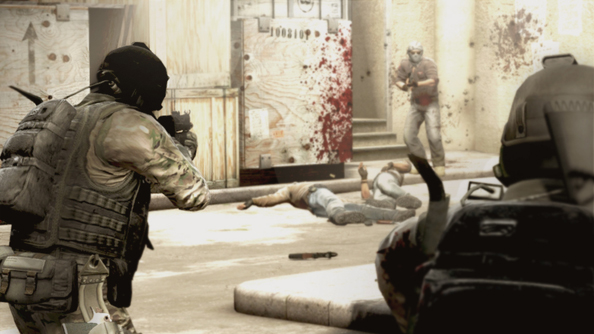
Words by Owen Hill
Here’s the beauty of CSGO: even though I’m extremely late to the Counter-Strike party, for the first time in the series I can jump into a game with a few friends and not get annihilated. The matchmakingworks: a remarkable feat in a game where players’ experience can range from a few hours to 20 years.
Back up: Global Offensive is the first Counter-Strike that I’ve played competitively. By competitively, I mean, in Competitive Matchmaking, of course, not to a respectable level. I understand why this might be off putting to some, though. Counter Strike’s skill ceiling is scarily high.
But it’s superb.
That skill ceiling is what brings me back. Take the guns themselves: different recoil patterns, accuracy, armour penetration, clip sizes, weight. I’m not ashamed to admit that in my first 30 or so hours of CS:GO pretty much depended on the P90 – one of the more forgiving SMGs in the game, and one that got me consistently mocked for being a noob. But I was a noob.
It worked though, for a while. As I progressed up the ranks I discovered the downsides of the trusty P90, and started to buy M4s and AKs due to their increased range and headshot potential. That moment of personal progression meant a lot to me, far more than unlocking a foregrip in Battlefield or a red-dot sight in COD.
There’s even learning curve to chucking a grenade. For a frankly humiliating amount of time, they were a hindrance, something I’d buy because it seemed like the right thing to do. 90 per cent of the time I’d flash myself, or bounce once off the wall at the wrong angle and injure my teammates. That kind of thing really pisses people off, so I kept them in my pocket.
Thankfully, I died a lot, and got to watch more experienced players mop up after my mistakes. It’s another thing that puts impatient players off, but the waiting was my CS School, and I had an excellent record of attendance.
To get good at DOTA, I feel like I need to play the AI many, many times, or open my browser and study. In contrast, I’m constantly learning during a Counter Strike matches, alive or dead, winning or losing. I watched other players make the same mistakes that I was partial to and recognised their blunders. I saw better players use the tools that mystified me to good effect. I slowly understood the importance of Ecoing in the right rounds, and explaining your death succinctly instead of shouting “Fuck!”
Other shooters might have the depth, but none have drawn me in like this. Why? Because I miss caring about winning and losing. A simple concept, but something that’s missing from shooters of late. Call of Duty and Battlefield are far prettier games but, unless you play in a dedicated clan (something I don’t have time to do), they’re an oddly lonely experience. Win or lose, it just doesn’t matter as long as you get your unlocks. In CS:GO, communication is key and, thanks to the excellent ranking system, people are desperate to win. As a result, most keep their mics live, and their tactics tight. These matches can last over an hour. Better make some friends quick, eh?
Then there’s the drops. Unlike TF2’s potpourris of weaponry, it’s all cosmetic, but The Arms Update, introduced in August this year, has added a new level of persistence to my Counter-Strike sessions. Before, during, and after every match I look at my guns with pride. It’s a personal thing, your CS:GO inventory. Are you the type to show off a Neon SSG, or more of an Anodised Metal kind of player? Do you brandish the 5 Year Veteran coin, showing your dedication to the cause, or the Operation Bravo medal, proving your support of the community? These things matter.
CS: GO has reinvigorated my love for competition, shooters, and the exotic delights of flashy guns. I’ve even written analmost pornographic text adventureatcsstory.net.
I’m extremely late to the party, but it’s still banging. Come on in! Stay awhile. Pop open a crate of guns! There’s plenty to go round.
Read the PCGamesN guide on how to get better at CSGO.
Gone Home
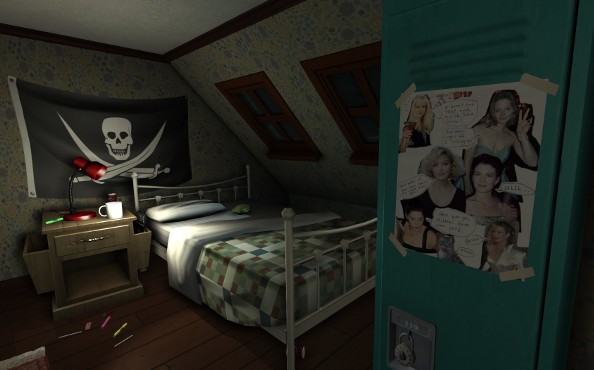
Indie drama in which you play a woman returning from a trip to Europe to find her massive house empty, her family missing and her three-ring binders strewn about every room. Explore the gloomy abode, discover secrets, uncover mysteries, read notes, it’s all going on here. Check our interview.
XCOM: Enemy Within
The distinctly not-underwater expansion to XCOM: Enemy Unknown delivered an extra-terrestrial swathe of new additions, from cybernetically augmented soldiers and Mechtoid alien foes to all new maps and tactical challenges. The name’s fairly ominous sounding too, in a “what ifwe’re the real monsters” sort of way. XCOM: Enemy Within has glorious trousers.
The Walking Dead: 400 Days
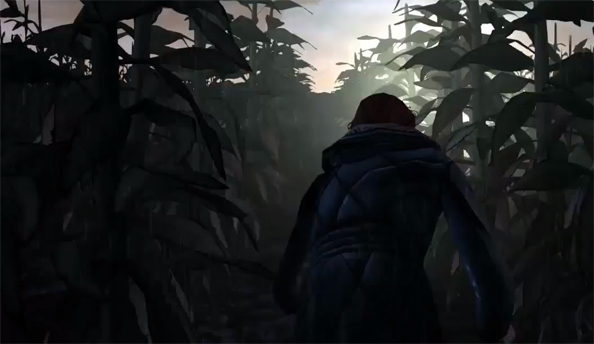
Bookending season one, Telltale’s The Walking Dead: 400 Days also bridges the gap before the much anticipated second season. It’s still about clicking on things and talking to people while zombies circle you menacingly, but this time there are five new characters, each with their own playable storyline. It reflects decisions made in season one, and affects events in season two. Perfect!
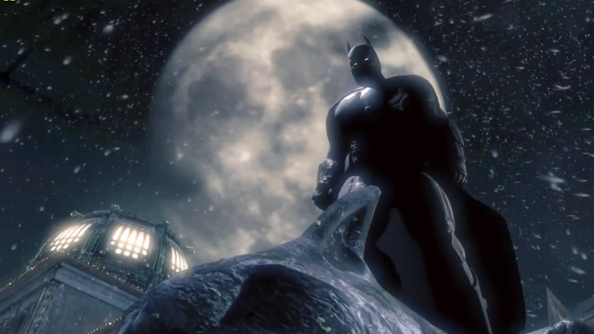
Batman: Arkham Origins
Rocksteady handed the Arkham reins over to Warner Bros Montreal for this Batman sequel, which focuses on one night out in Gotham in which all of Batman’s best frenemies try to take him down for a $50 million bounty. How will Batman get out of this one? Probably by punching a lot of men until they are unconscious.
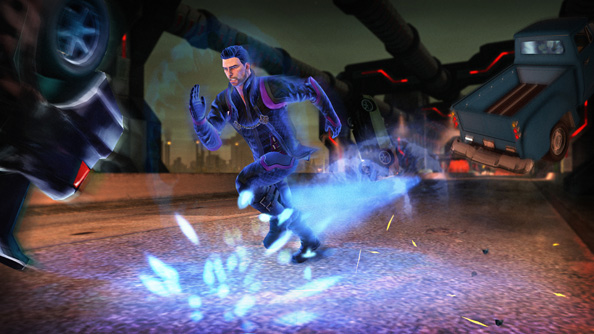
Saints Row IV (Review)
Words by Fraser Brown
I was singing within the first fifteen minutes of playingSaints Row IV. Riding an airborne nuclear missile, belting out Aerosmith’s ‘98 classic “I Don’t Want to Miss a Thing”, my compatriots below bidding a final farewell to their fearless leader.
It probably sounded horrible. Not only because I’m completely tone deaf, but because I was also bellowing with laughter.
Volition’s fourth and best open-world caper is a comedy masterpiece, managing to lampoon countless movies and games without missing a beat, and while it didn’t exactly break any new ground with its mechanics or design, fun as they were, it’s earned its spot as one of my Games of 2013 because it’s so unrelentingly funny.
Saints Row IV is essentially a theme park, constantly throwing new things at the player, be it a completely insane mission involving the use of stolen telekinesis powers where you throw people, objects and giant stuffed animal heads around the city to rack up points for the amusement of an intergalactic dictator, or yet another digital realm to play in, like a Pleasantville-style suburban nightmare or an underground bunker that screams “I’m a Metal Gear Solid mission!”, complete with cardboard boxes.
It’s a series that started off as a poor man’s Grand Theft Auto, but led to leaping over the tallest buildings, attacking glitching citizens with tentacle swords, fighting mechs on a spaceship, and dressing up as an eagle crossed with Evel Knievel who can kick so hard he causes a nuclear reaction.
It would be easy to write Saints Row IV off as appealing to the lowest common denominator, mocking easy targets and often devolving into plain silliness, but Volition’s commitment to the absurdity raises it to new levels of ridiculousness, piling on layers and layers of meta-gags and in-jokes. There’s even a voice-pack simply named “Nolan North”.
Take Keith David, veteran actor and frequent voice actor, who stars not only as himself, but a version of himself who has now become the Vice President. Now, having an actor playing himself in a major game role is amusing on its own – especially when he’s already lent his vocal talents to the series before in the guise of the original Saints Row’s naughty Julius, which is frequently mentioned by other characters. But then when you add in the fact that David co-starred alongside Roddy Piper in They Live, the ‘80s cult classic which also serves as one of the game’s inspirations, and then get to witness David and Piper brawling in a scrap reminiscent of They Live’s famous fight scene, hailed as one of the best movie fight scenes ever made, the whole thing becomes spectacularly clever.
Open-world romps so often overstay their welcome, and while I might have once been more than happy to spend a hundred hours or so with one game, deadlines and general adult business usually means that I’m relieved when a game finishes and I can move onto the next one. Not so with Saints Row IV. When the credits rolled, all I wanted was more time. I’d finished all the side content along with the main missions, spent a good long time just mucking around throwing cars at people, but I didn’t quite feel ready to leave virtual Steelport.
I may just fire it up again.
Final Fantasy XIV (Review)
The suited and rebooted Final Fantasy MMO is all moogles and airships and chocobos, predictably enough. Final Fantasies are too big to fail, and so after wiping itself out in 2010 with a server-wide extinction event, Final Fantasy XIV is back and ready to win your attention. We’re not complaining.
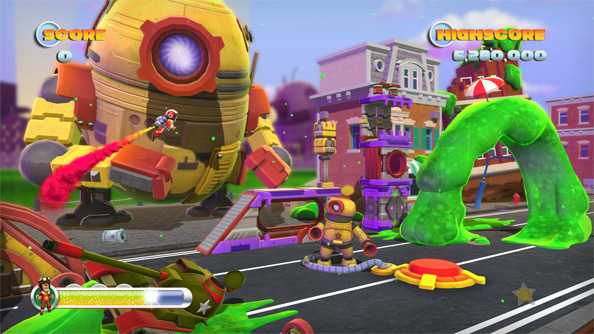
Joe Danger / Joe Danger 2: The Movie (Review)
An homage to home console classics of the early 90s, Joe Danger is a previously console exclusive Excitebike style platform racer with vats of charm and style. Addictive in singleplayer and relentlessly fun in multiplayer, the PC release delivers proper Steam integration for sharing levels and beating your friends’ times.
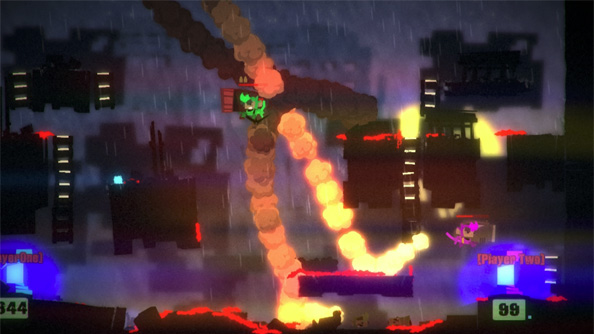
GunMonkeys (Review)
A multiplayer 2D arena battler in which player controlled, gun-toting monkeys have been sent to the future to retrieve power cells to return to the energy companies of the past. Dynamic, procedurally generated levels and spunky graphics fuel this intensely hyperactive Size Five POWER BALLAD OF A GAME. Whoosh.
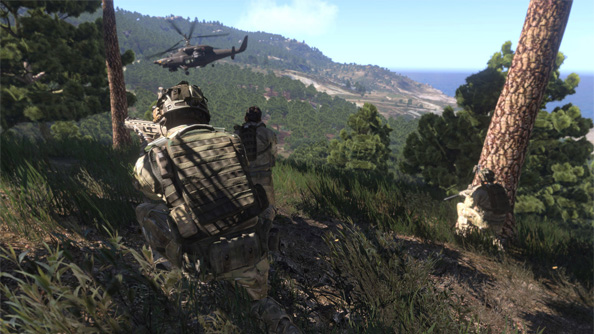
Arma 3
After something of a tumultuous development process, Arma 3 hasn’t taken a hit as a result. It’s hands down the most ambitious and technically competent military simulation in history, combining on-foot operations, air and ground vehicle combat and lots of underwater exploration. We played Arma 3 wrong.
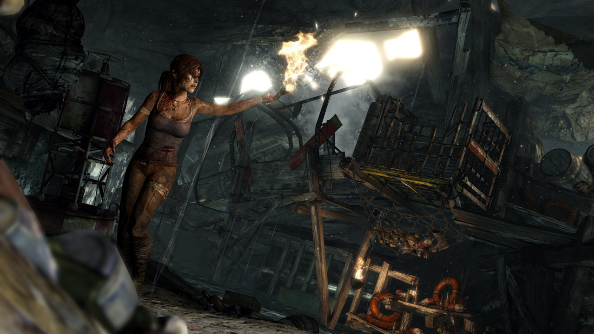
Tomb Raider (Review)
Words by Matt Purslow
The one game that has constantly stayed with me throughout 2013 is Crystal Dynamics’ Tomb Raider reboot. Please lower that eyebrow. It may be a big-budget AAA designed to reboot an established brand, but Tomb Raider has more soul than most other mainstream games released this year.
Why? In the past, Lara was an icon. In this new Tomb Raider, she’s a human.
Gaming’s favorite leading lady evolves from gun-toting tiger murderer into a post-grad with aspirations, relationships, and a good dose of fear. Enduring the hardships of being washed up on an island inhabited by pirates, Lara works her way through her origin adventure in a game that’s equal parts ancient-wonder investigation and survival horror.
Crystal Dynamics’ first success in Tomb Raider was to have Lara’s story written by “real-life woman” Rhianna Pratchett. Turns out getting a lady to write your strong female character actually makes some kind of sense.
Tomb Raider is genuinely one of the most frightening games of the year. It won’t have you falling out your chair in the manner of Outlast, but guiding Lara through rivers of blood, caverns of rotting corpses, and skull-adorned tombs is genuinely creepy. Hers and your fear through the first quarter of the game only makes what to come more intensely satisfying.
Lara endures. Armed with a makeshift bow and collection of rusting shooters, she stalks through the undergrowth silently picking off enemies one by one. As they become fewer and more petrified, you suddenly realise that Lara is approaching the superheroine that she used to be: only this time with armed with an actual personality.
What’s nice is that journey from student to survivor is mirrored in a player’s own sense of power. Tomb Raider’s steady stream of unlocks means there’s frequently new additions to Lara’s combat and adventuring abilities. She’ll graduate from desperately throwing sand in enemies faces and scrambling away to prowling through the undergrowth and assassinating with scientifically-crafted shortbows. Upgrades come thanks to the constant supply of salvage, which whilst not really making much real world sense, means that your weapons constantly improve over the course of the game and offer up new and interesting tactics for combat. An RPG-like survival skills tree also allows Lara to explore more effectively, reflecting how her time on the island matures her senses. And with heightened survival instincts comes the discovery of more tombs to raid.
Tombs are perhaps – amusingly – the element of Tomb Raider that disappointed me the most. They’re really well crafted physics and climbing puzzles, but gosh they’re tiny. We’re talking like one room small. Finding them becomes a compulsion though, as each one not only notches a few more percent onto your completion counter, but also hands over the boxes of salvage needed to upgrade your bow to competition standard, or put a muzzle choke on your shotgun that sets buckshot pellets on fire.
Tomb Raider is just one of a very small handful of AAA games this year that truly satisfied me. It isn’t just one of this years most enjoyable games, but a bright treasure in Square’s reboot trophy cabinet that can sit proud next to Deus Ex: Human Revolution.
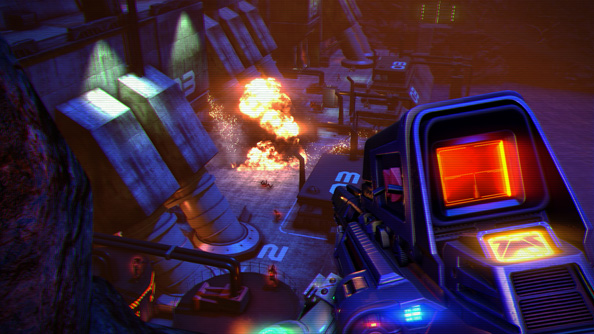
Far Cry 3: Blood Dragon
The follow up to Far Cry 3 is this absolutely ridiculous, totally overblown 80s style sci-fi shooter. Think neon, think cyborgs, think pumping retro tunes. Does it look cheesy? Yes. Does it look like an awful lot of fun, too? Absolutely. Read aboutFar Cry 3: Blood Dragonhere.
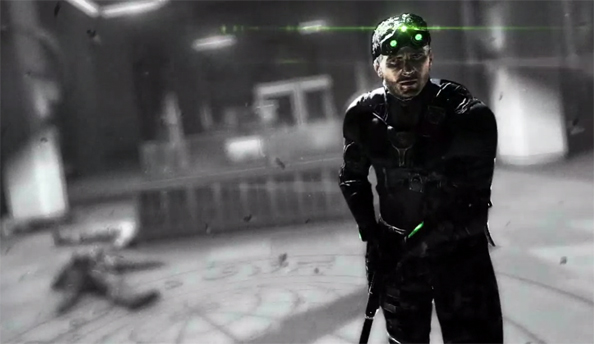
Splinter Cell: Blacklist
In an about turn for the best-while-urban series, the most recent iteration of Splinter Cell saw Sam Fisher stealthing his way around a broadly daylit Middle East, murdering men using all manner of weapons and technological gadgets. Creatively barren setting aside, the re-emergence of Splinter Cell’s unique brand of stealth is worth keeping an eyebrow raised over. Steve got sick playing it.
Zeno Clash 2 (Review)
The original was a game about punching birds in their big dumb beaks. The sequel follows a similar path, following on from the bizarre plot of the first and keeping a firm focus first on person brawling, kinetic and tactical combat. Half-Miyazaki, half-Bosch (Heironymous, not the washing machine), Zeno Clash’s is a truly original universe.
Kerbal Space Program (Review)
An in development space sim whose cartoonishness starts and ends with its green-skinned astronauts, Kerbal Space Program is an accomplished, physics-based interplanetary exploration simulator, one in which you build your own rocket ships using prefab parts and attempt to get your creation off the launchpad in once piece. Recent versions added landers and better mission planning.
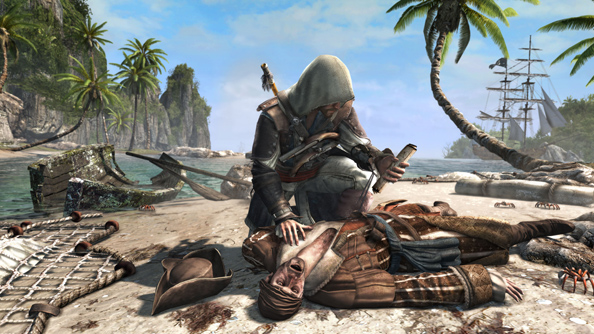
Assassin’s Creed IV: Black Flag
Words by Jeremy Peel
I’ve always liked the message that looms up beyond the splash screens every time you start an Assassin’s Creed game. “This work of fiction,” it disclaims, “was designed, developed and produced by a multicultural team of various religious faiths and beliefs”.
It’s a warning born out of fear of lawsuits; a ritual scrubbing of hands designed to curb any unnecessary excitement. But it has the opposite effect. Like an ‘18’ rating to a new teen, it promises boundaries crossed and statuses un-quoed – “Here be creative risks and bold experiments in game design,” it says.
Maybe the series lost that excitement somewhere in Italy, but it clings to Black Flag like crustaceans to the Jackdaw. That sense, of creative cowardice turned to daring, high concept ends, runs through it like Ezio through Florence.
It’s telling that Edward Kenway doesn’t don his assassin’s garb during a humble basement ritual, but instead rips it unceremoniously from the body of a man he’s just killed. Black Flag proper is Perfect Pirate Game first, Assassin’s Creed Sequel second.
It takes a couple of hours in Havana, letting series veterans adjust to the shore before they set out to sea – but once Black Flag lets its systems breathe, it unfolds. It offers itself up to its amorphous ocean, opening Ubi’s distraction-driven open world model to new dynamism and occasional moments of quiet.
Is it folly to compare an Assassin’s Creed game to Elite? If not that, then it’s Freelancer disguised by sea legs: a series of compelling A to Bs driven as much by personal whim as narrative thrust, invariably interrupted by random battles or storms (the ocean’s asteroid fields).
The two games feel like one. As usual you’re navigating undulating terrain, with one eye on the minimap for the wandering eyes of the authorities. But the sea is not so in thrall to the player as the land. It sinks ships you’d rather have boarded, and rogue waves will sink you too if you’re not careful.
When I think of sailing in Black Flag, I think of Travel Mode – when the camera pulls you way back, and lets the wind bend around your ears. Third-person power fantasies like these are as much about circling and admiring your avatar as they are playing them – and Black Flag recognises this, makes your ship a point of upgradeable pride. That said, bellowed sea shanties are just one way in which your ship and crew come to feel not like an avatar to be steered with wasd, but a broiling mass of people with morale and misgivings. Your control isn’t a given, but a privilege.
Maybe what I like best about hiking up one wave and slipping down the next in the Jackdaw, though, is what I’ve dubbed big-fish, little-fish syndrome. Through Kenway’s telescope you size up the ships, checking their cargo against your mental upgrade map. Then you state your business by sinking your target’s gunboat escort with mortar fire, and pull the sails tight to ram the frigate while it’s still flailing. Within seconds you’ll have boarded, making good use of your pistols in a cramped space swarming with sailors – but what’s this?
A Man O’ War – an angry city with sails – rolls purposefully across the waves. And you’re outta there: reduced from sea-king to sinking in the time it takes for the weather to change.
And what weather. Sometimes you get to watch it sit sulkily above the ocean, spitting lightning. The fog is that surprisingly rare instance where Black Flag allows itself to evoke Pirates of the Caribbean, pulling the ghoulish brigs and hulking landmasses disconcertingly close.
Outside the animus, Black Flag is just as brave. Simply put, Ubisoft Montreal have taken what was originally an act of imaginative low self-esteem – to couch their historical authenticity in pulpy sci-fi – and reworked it into some of their bravest storytelling to date.
Freeing themselves of the precursors, the apparent alien refugees of Mass Effect who popped in every 10 hours to bloat ACIII with unnecessary pomp and numb end-of-the-world rhetoric, the Canadian contingent have replaced Desmond with a new employee at Abstergo Entertainment – a game development offshoot of the villainous corporation, based in a swish Montreal office like that of the publisher’s most populous studio.
“We’re making fun of Ubisoft,” said game director Ashraf Ismail a week before Black Flag’s release, and meant it.
Your meta-job is to sell the thrills of the animus as a sort of DNA-powered Oculus Rift – and your meta-bosses agonise over the task of ensuring their ‘players’ won’t be bored, fudging history in the name of fun.
They say write what you know, but it’s remarkable that Ubi would greenlight something so close to the bone. Posters of Black Flag’s key art adorn the walls, and Abstergo company history references Ubisoft by name. Let me make that clear: in AC canon, the publishers have allied themselves with the Templars.
Have I mentioned the absurd production values? I adore the cr-cr-crack of the cannons, and the turtles pulling their heavy shields along the sand.
Lest we forget, this game isthe work of eight studiosacross many timezones, produced in a little over the timeCall of Duty: Ghosts and Battlefield 4were. Its cohesion, polish and considered beauty make it a triumph of communication, aside from anything else.
Explicitly and otherwise, Black Flag is a game about freedom, and that’s really what it’s all been about for me. For once when I sit down to play a game, I get that sense my world is opening up, not tightening in.
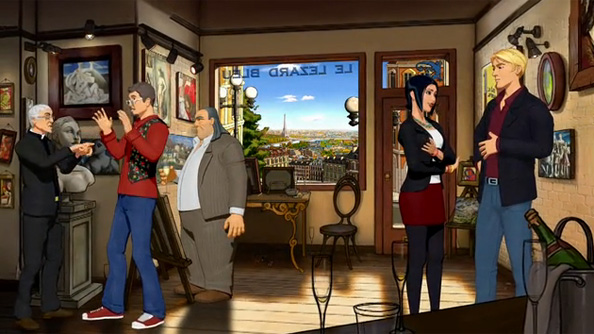
Broken Sword: The Serpent’s Curse (Review)
Charles Cecil’s crowdfunding efforts raised the hundreds of thousands of pounds needed to start development on a brand new, fully voice acted Broken Sword point and click adventure. The Serpent’s Curse saw classic voice actors return to reprise their roles too, for fans of both series consistency and familiar sounding people.
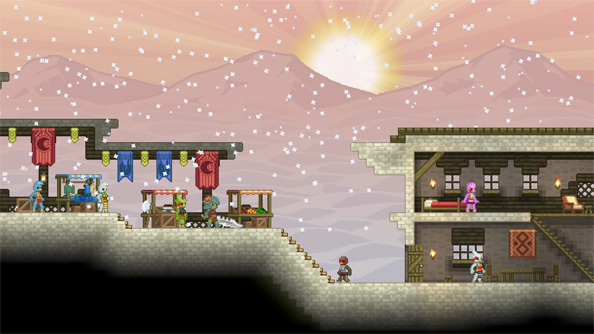
Starbound (Review)
The spiritual successor to Terraria, Starbound is essentially Terraria in space, so much so that when I forgot the name of it just now I found it by googling “Terraria in space”. A 2D Minecraft in which you explore alien worlds, building bases and discovering ancient artifacts. One of the most exciting indie games in development right now.
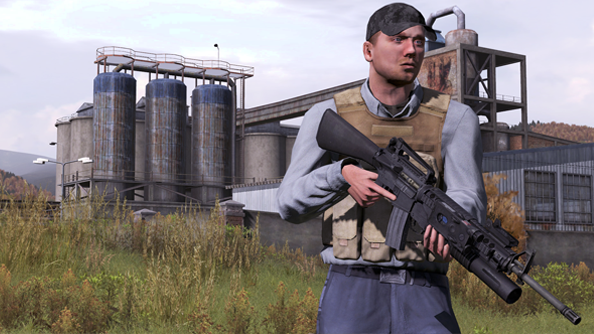
DayZ (Review)
This was once a hardcore zombie survival mod for ArmA 2, but now it’s taken on a life of its own and is seeing release as a standalone game. DayZ puts players in a post-apocalyptic world where food, weaponry and resources are scarce, while the undead are all too common. It’s all about making your way with the limited tools you have and, most importantly, it’s about questioning whether you can trust the other players you meet along the way.
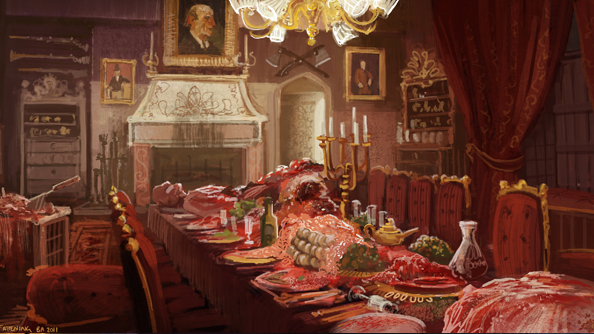
Amnesia: A Machine for Pigs
True horror is being powerless, and developer Frictional Games are all too aware of this, being experts in first-person survival horror. A Machine for Pigs is their latest game and it hurls you into a gothic story of dark mysteries and terrible secrets. This isn’t a game where you can blast your way out of trouble, you must use stealth and your wits to survive and, perhaps more importantly, keep yourself sane.
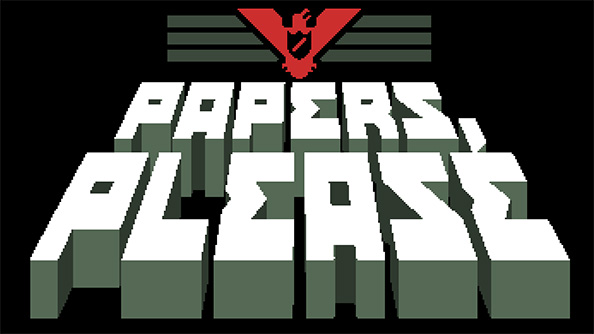
Papers Please
Words by Steve Hogarty
My game of 2013 isPapers Please, because whenever anybody who doesn’t play video games asks if I’ve been playing any interesting video games recently, “yes I have, I have been playing a game called Papers Please” are the words that I nearly always say. And when they ask what the game is about, they actually seem somewhat interested in my explanation instead of slinking further and further into their own brains. So that’s good.
Papers Please is a game in which you play a border control agent, manning a heavily secured checkpoint between two fictitious states reminiscent of post-war Berlin. People wishing to enter the country sidle up to your desk one by one and present their papers, at which point you must check that their details are in order before either stamping a big green ‘APPROVED’ stamp or a big red ‘DENIED’ stamp.
Each day, the restrictions on who can enter your country and what paperwork they require become increasingly convoluted. In the beginning the rules are simple enough, people from certain nations must be turned away, all foreign travellers require entry permits, things like that. But soon, the confounding bureaucracy of your unseen government demands half a dozen scraps of paper be presented upon arrival at your desk: passports, visas, work permits, access permits, vaccinations, special dispensation for foreign dignitaries. Full body scans become available for entrants whose paperwork doesn’t match their physical description — a mismatched weight might mean a thigh strapped full of narcotics — while fingerprints can be taken to corroborate psuedonyms and aliases.
That’s essentially how your desk job proceeds, with a series of randomised entrants queuing to seek passage across the border, mixed in with some pre-scripted entrants dropped into your booth to test your moral fibre. Your income is based on successful management of each entrant, correctly turning them away or allowing them entrance in accordance with their completed paperwork. That income is then spread thinly over the needs of your impoverished family. Rent, heat and medicine stave off the very real risk of your son, wife or mother-in-law falling ill and perishing, so unwaveringly adhering to the letter of the law is in your best interests. Do your job well or people die. Don’t make other people’s problems your own.
But when a man fleeing his own country with the correct paperwork mentions that his wife is just behind him in the queue and asks that you look after her, only for her to show up confused and holding a barely expired entry permit, what would you do? When a government official and paymaster orders you to look the other way when his lover arrives at the border without the correct visa, do you bend the rules then? Even if you decide from the outset to leave your morals at home, to be utterly robotic in your decision making, to become an unfeeling extension of the vascillating will of the government, Papers Please will find a way to test that resolve. The growing piles of paperwork become a plain logistical challenge too, slowing you down and chipping away at your paycheque.
It’s unrelentingly grim too, a dull parade of sadness through a bleakly monochrome checkpoint. People standing in the queue appear as a winding ribbon faceless silhouettes, most of whom will never reach the border before the siren signals the end of the day and they’re all sent home. The daily newspaper broadly paints a depressing picture of the wider world. Then there’s a sense that you might be the bad guy, cruelly denying refuge to innocent people who simply failed to keep up with incomprehensible legislation, whose only crime is being a bit crap at filling in forms. On the other hand, it’s really good fun stamping DENIED on a passport. You can stamp it right on their stupid faces. DENIED DENIED DENIED. GET OUT. Papers Please really speaks to the latent xenophobe in all of us.
Few games can jab a mind-fork into the emotional centres of your brain as effectively as Papers Please. Your interaction with the world is so limited, but the impact of your decisions, and just how contorted the feelings informing those decisions can become, are huge. The game demonstrates how readily you will reduce humans to data points, how your unending quest for efficiency leaves you cold to their pleas. You sit in your booth, working your day job. They arrive at your desk, their entire lives in the balance and about to be utterly changed on your whim. It’s a game, but would you act any different if you really found yourself in that seat?
Papers Please never invites you to abuse your position of authority but gives you plenty of opportunity to do so. And as the game progresses you move towards impossibly complex rules and converging story threads that force you into making tough decisions, pitting your jobsworthiness against your humanity. It’ll spit out dozens and dozens of different endings depending on the decisions you make too, which acts more as a means to make your experience different to that of a fellow player rather than a bunch of narrative routes to go back, replay and explore. The game’s a little too long for that.
So that’s the most interesting experience I’ve had playing a game this year. Of course it’s come from an indie developer, because only broke people with imaginations create anything worthwhile. Go play Papers Please and then tell somebody who doesn’t play games all about it, and watch how quietly amazed they are that there are games not about shooting terrorists in the face and head. Magical.
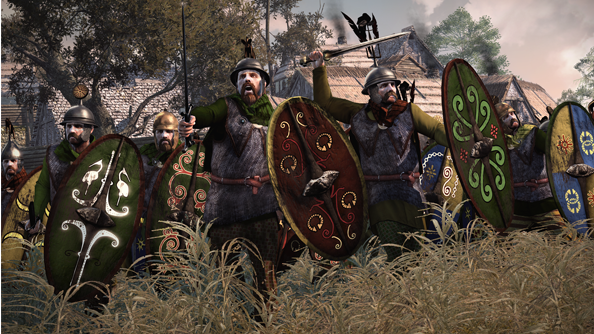
Total War: Rome 2 (Review)
If strategy is your cup of tea, then that cup of tea doesn’t get much more epic than the Total War series. If history is your cube of sugar, then that doesn’t get much more epic than ancient Rome. Stir that sugar in and voila, this is your chance to take control of the Roman Republic and spread throughout Europe. If you’re the megalomaniacal sort, you might even want to try for Emperor, though the Senate aren’t likely to give up their Republic easily.
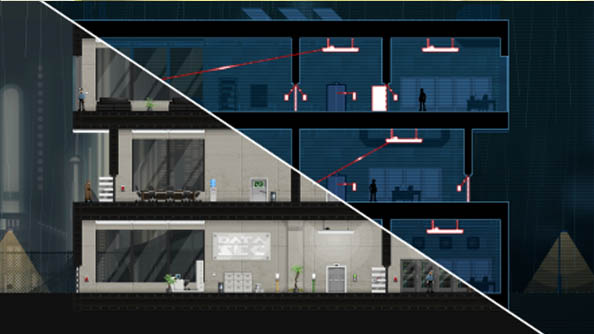
Gunpoint (Review)
This indie game of stealth, hacking and diving through plate glass windows is one of the smartest and most keenly-anticipated titles in development right now. Gunpoint casts the player in the role of a secret agent who must infiltrate a series of ever more complex buildings to steal information by hacking and rewiring their systems. Switch off lights, disable lifts and bamboozle guards before you make your escape by leaping through a second-storey window
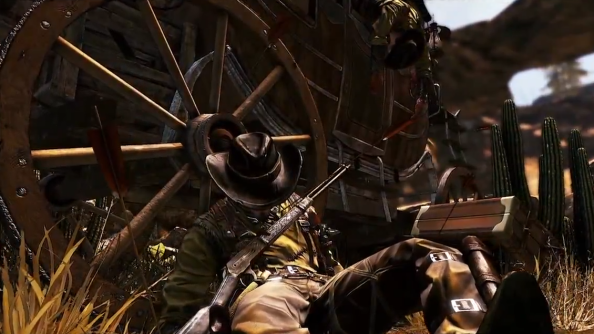
Call of Juarez: Gunslinger (Review)
A comicbook style first-person shooter set in the old west, this stars the legendary gunfighters of old, weaving increasingly improbable stories around them. Sometimes Gunslinger is about separating the myth from the reality, but most of the time it’s about having furious shootouts in frontier towns.
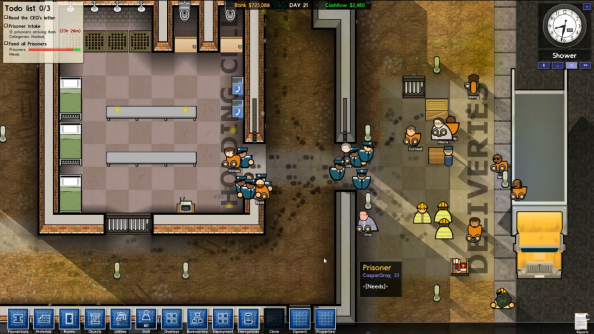
Prison Architect (Review)
A prison management simulation doesn’t sound like the most appealing concept for a game, but Prison Architect is developing into a fascinating and very detailed experience, something that belies its cartoonish look. What kind of a prison will you run and how will you respond when the first riot kicks off?
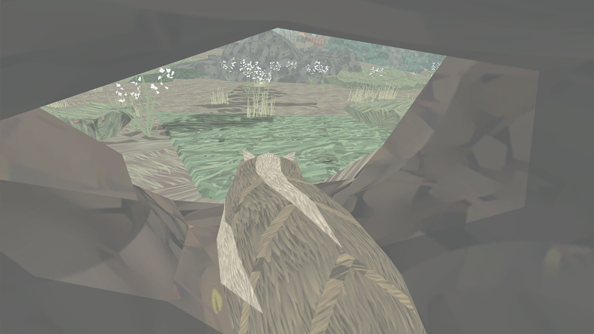
Shelter
Words by Julian Benson
I’d make a naff mother badger. That’s what I learned in 2013.
Might and Delight gave me five cubs to look after in Shelter and all but one of them died. In my defense, cubs, left to their own devices, have zilch survival instinct. But intheirdefense their mother should probably recognise they’ll waddle a little slower than a full-grown badger when crossing a raging river. A mother badger should likewise probably watch out for them in a forest fire.
Like I said, I’d make a naff mother badger. But that doesn’t mean I didn’t enjoy every minute of my miserable motherhood.
You start Shelter by abandoning your sett. Your cubs have grown too large for you to bring back enough food for all five of them every day. So begins a journey through the seasons, with each passing level your cubs grow and the scenery changes.
Starting in spring, there’s plenty of fruit on the trees and vegetables in the ground. You can bring apples to earth by headbutting tree trunks or pull up onions with your teeth to feed your cubs. Later seasons have you hunting foxes and fishing for frogs.
But the later seasons also bring with them environmental threats. Autumn rains cause the mountain’s river to burst its banks. And, as the days draw on, the forest dries leading to fires.
Through all of this you must lead your cubs. It’s simple enough, they follow you wherever you go. There’s no hold command so they’re always nipping at your heels. When you run they try to keep pace, when you hide they lie down in the bushes next to you, and when you knock apples out of the tree they sit and eat with you.
It’s wonderfully charming.
Though, it’s more than charm that elevates Shelter into Game of the Year territory. After all, mechanically, Shelter is too simple. You walk down a linear path to the level’s end, occasionally knocking a tree or two to feed your cubs. It should, by that standard, be a boring game.
Yet its simple skeleton is wrapped in meaning. Meaning that makes the game affecting and absorbing.
When a cub dies it’s wholly your fault and you feel it.
I lost my first cub in the dark. It’s nighttime and you’re guiding your caravan of badgers through a gully. Your vision is limited to a tight ring about your body. Your young crowd around you within the ring. That is, until they hear a growl in the dark. The noise sends them running into the night. If you don’t find them fast enough, as I didn’t, one of them is taken by the something that’s in the darkness.
The baby badger’s death isn’t highlighted by the game. Five badgers ran into the dark, four came back. There wasn’t even much of a noise to suggest what had happened.
But, after I lost that cub, I never left the others to run into the night.
I lost my next two cubs to the river.
If they’re caught in the floodwaters as you cross the river then they’re washed away. Again, there’s no noise or HUD marker to say you’ve lost a cub, just the diminished group of yipping badgers following you.
I hated crossing the river and every time I did I span the camera back to watch what was happening with my cubs. But there’s nothing you can do to make them move faster. All you can do is watch as the wave crashes over the group and one cub is washed away.
The last of my cubs to die hurt the most. After we crossed the last stretch of water it collapsed on the bank, curled up, and died of exhaustion. A pathetic death.
I rarely ran when I was left with only one cub. I didn’t want to lose it from my sight. I walked close to it till the game’s necessary conclusion.
Last year I chose The Walking Dead as my Game of the Year. Over the course of five episodes it forged a paternal relationship between me and Clem, your ward in the game. That bond was made with hundreds of lines of dialogue, human characters, and choices that altered the course of the game.
It would be a lie to say I felt as strongly towards the cubs in Shelter as I did, and still do, feel towards Clem but that Might and Delight were able to approach that bond in such a short time with so limited an interaction says something of why their survival game is special.
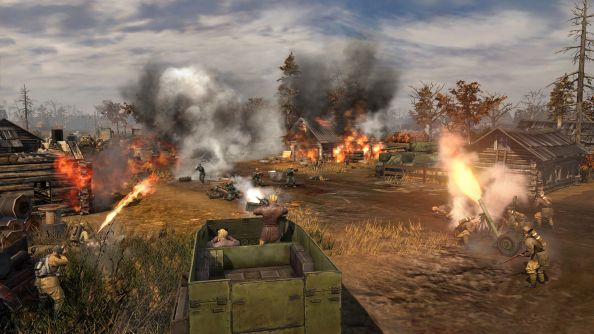
Company of Heroes 2 (Review)
The first Company of Heroes was the very best in World War 2 real-time strategy, so this sequel, set on the Eastern Front, treats fans to more. This time round, alongside a gaggle of tanks and all kinds of squad tactics, the game engine modells smoke and weather effects. Snow covers tracks, ice breaks under tanks. Eek!
The Cave
From the brain of Ron Gilbert and the guts of Double Fine, The Cave is a side-scrolling adventure in which you play as three of a cast of seven unique characters as they explore the titular cavern, using their individual powers to overcome obstacles and explore an intelligent and quirky world.
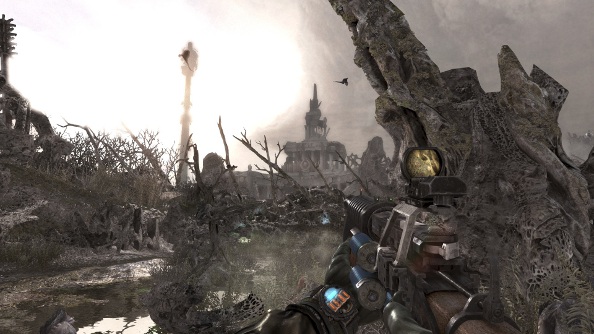
Metro: Last Light (Review)
Metro 2033 was a grim and unforgiving vision of what was to come, an intelligent shooter set deep underground in Moscow’s metro network. This sequel followed that same style, portraying a deeply unpleasant, often violent and very frugal future for us all.
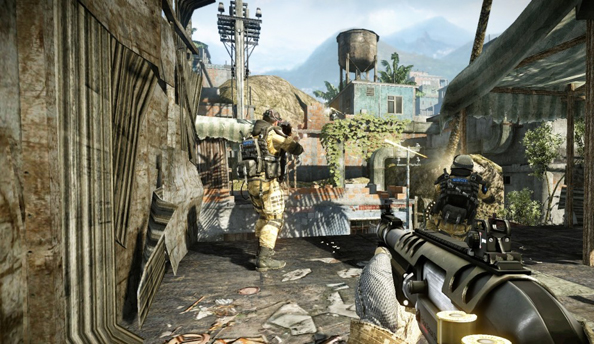
Warface
Crytek’s free to play FPS has a ridiculous name, but so does Douwe Egberts Pickwick Tea and that doesn’t stop me drinking it all day. The CryEngine 3 powered Warface is a surprisingly accomplished man-shooter war videogame, one that will be continually developed as it goes.
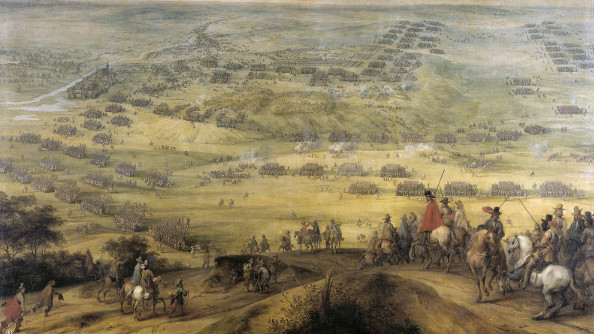
Europa Universalis IV
Words by Rob Zacny
When is the last time you really lost yourself to a game? I don’t mean really enjoyed it, or played a lot of it. I’m talking about that Civilization-style “how it is three in the morning already?” realization that you’ve just spent five hours utterly absorbed in a task, without a thought to spare for the outside world. I’m talking about the game that seems to exert an almost gravitational attraction, that is somehow launching even as you sit down in your chair, because it’s location on your desktop is a part of your muscle memory now.
It doesn’t happen to me very often anymore. Maturity and experience have tempered my relationship with games. I really can play just a few turns of Civ, or do just a mission or two in Assassins’ Creed. But Europa Universalis demolished all my restraint. It is too good a game: a puzzle that can never be fully solved, a story that always has one more twist, a voyage with just one more leg.
Playing Europa Universalis IV is like reading an exciting history book and then seeing yourself step onto the stage. Suddenly Charles the Bold is tagging out, and you’re taking his place as the Duke of Burgundy, wedged between the two irresistible historical forces of France and Habsburg Austria. This story is supposed to end with the duchy finally being extinguished, but maybe this time it can end differently.
All the key elements are there: the Byzantine international politics — with all its false-friends, hated enemies, respected rivals, accursed traitors, and helpless bystanders — a web of causes and consequences that can cause events to spiral out of control for even the most conscientious rulers, a world that is ever-changing, and domestic issues that can demand attention at the most inopportune times.
That’s why it feels so genuine. You have a great deal of power and control… but you are also at the mercy of historical chance and constraint. A great king dies and leaves no heir, plummeting your fledgling empire into a deadly civil war. You make huge territorial gains and redraw the map of the world, only to discover that now half your army is tied down suppressing nationalist movements and, meanwhile, a cabal of nations has formed against you to block further expansion. You need more. More of everything. More infrastructure, more money, more troops, more territory.
What’s so funny is how it is at once an historical fantasy and a harsh lesson. In my time with Europa Universalis, I was both the wise defender of my nation and the wicked, incompetent imperialist. I was the coward who took a shameful peace and the brilliant manager who brought his country into modernity and set it on a course for greatness. I was better than the people who ruled the world during the Renaissance, and then I was every bit a bad. Sometimes there are very good reasons for doing very stupid things, as you put out fires with one expedience after another.
Yet far from feeling hamstrung or hassled, Europa Universalis IV leaves me feeling excited for the next stage. Every new problem gives me that same burst of happiness as turning the page in a book of crosswords, or finding a group of puzzle pieces that, from their pattern, must somehow be made to fit together. It is a game I can play even when I’m not playing it, as my mind works over exactly how the hell I’m going to force Russia to the peace table, or what I’m going to do when the Europeans show up at the edges of my burgeoning Indian superpower.
This is a difficult balance for a strategy game to strike, and Europa Universalis IV is the result of years of tinkering with a good recipe. It’s the one that brings all the pieces together into something tremendous, fun, accessible, and challenging. It is the Paradox game I can recommend unreservedly, the one that doesn’t come with caveats about “once you figure it out” or “if you give it some time.” It’s a great game, from beginning until…
Well, if I ever find an ending, I’ll be sure to tell you about it.
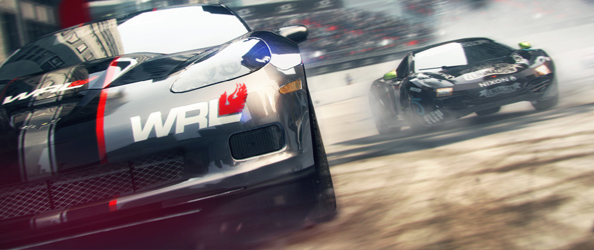
Grid 2
Codemasters know their bumpers from their exhaust pipes when it comes to racing games, so it was no surprise that Grid 2 built upon the unsettlingly intelligent racer AI and pristine driving model of the first game, while folding elements of the now defunct Dirt games into its own leathery, fibreglass embrace.
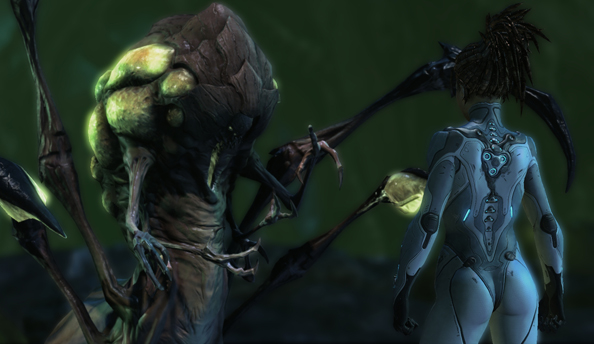
StarCraft II: Heart of the Swarm
Heart of the Swarm forms the second part of the StarCraft II trilogy and, as well as being a hyperactive and thoughtful strategy game about slaughtering millions of bugs, chronicles the genesis of one of the most iconic characters of the StarCraft universe. The final Protoss expansion, Legacy of the Void, is still incoming though it’s unlikely to appear any time soon.
